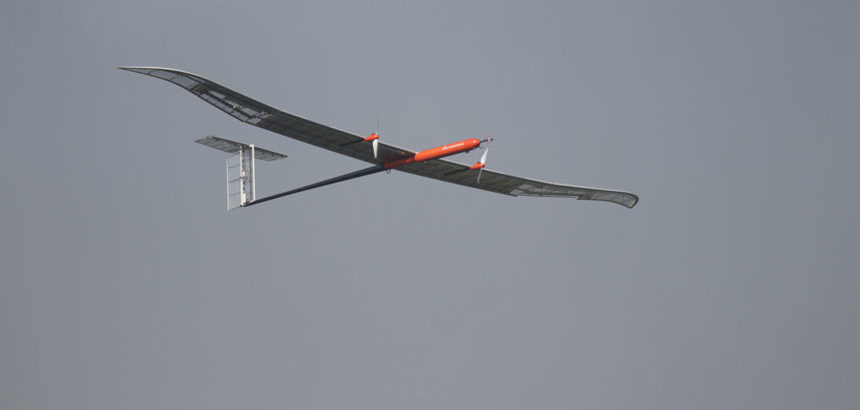The Korea Aerospace Research Institute has conducted a high-altitude test flight of solar-powered unmanned aerial vehicle EAV-3, which features a lithium-sulfur battery from Korean manufacturer LG Chem.
The battery company said, in a press release, the small aircraft was conceived for long flights at a stratospheric altitude of 12km or more. The airplane engine is powered by solar cells on the 20m-long wings and 9m body. “During the daytime, it flies utilizing a solar cell and battery power as a source of energy and, during the night time, it utilizes battery power charged during the day time,” said LG Chem.
The flight test was conducted in Korean airspace from 08:36 a.m. to 09:47 p.m. at an altitude of around 22km. “It flew for seven hours, out of a total of 13 flight hours, with a stable output in the stratospheric altitude of 12-22km, where a general aircraft cannot fly,” said LG Chem.
Popular content
The company said EAV-3's energy storage system had to endure difficult atmospheric conditions including temperatures of near -70 degrees Celsius and low pressure of a 25th of one atmosphere, for an environment the company described as almost a vacuum. “LG Chem plans to demonstrate a long-endurance flight that lasts more than a number of days by producing additional trial products of lithium-sulfur batteries in the future,” said the battery supplier. “Moreover, it plans to mass produce a lithium-sulfur battery that has an energy density more than twice that of the present lithium-ion battery, after 2025.”
British battery manufacturer Oxis Energy is also planning a lithium-sulfur battery powered two-seater plane. The all-electric aircraft is intended to have a flight time of more than two hours and a range of around 200 nautical miles.
This content is protected by copyright and may not be reused. If you want to cooperate with us and would like to reuse some of our content, please contact: editors@pv-magazine.com.



4 comments
By submitting this form you agree to pv magazine using your data for the purposes of publishing your comment.
Your personal data will only be disclosed or otherwise transmitted to third parties for the purposes of spam filtering or if this is necessary for technical maintenance of the website. Any other transfer to third parties will not take place unless this is justified on the basis of applicable data protection regulations or if pv magazine is legally obliged to do so.
You may revoke this consent at any time with effect for the future, in which case your personal data will be deleted immediately. Otherwise, your data will be deleted if pv magazine has processed your request or the purpose of data storage is fulfilled.
Further information on data privacy can be found in our Data Protection Policy.